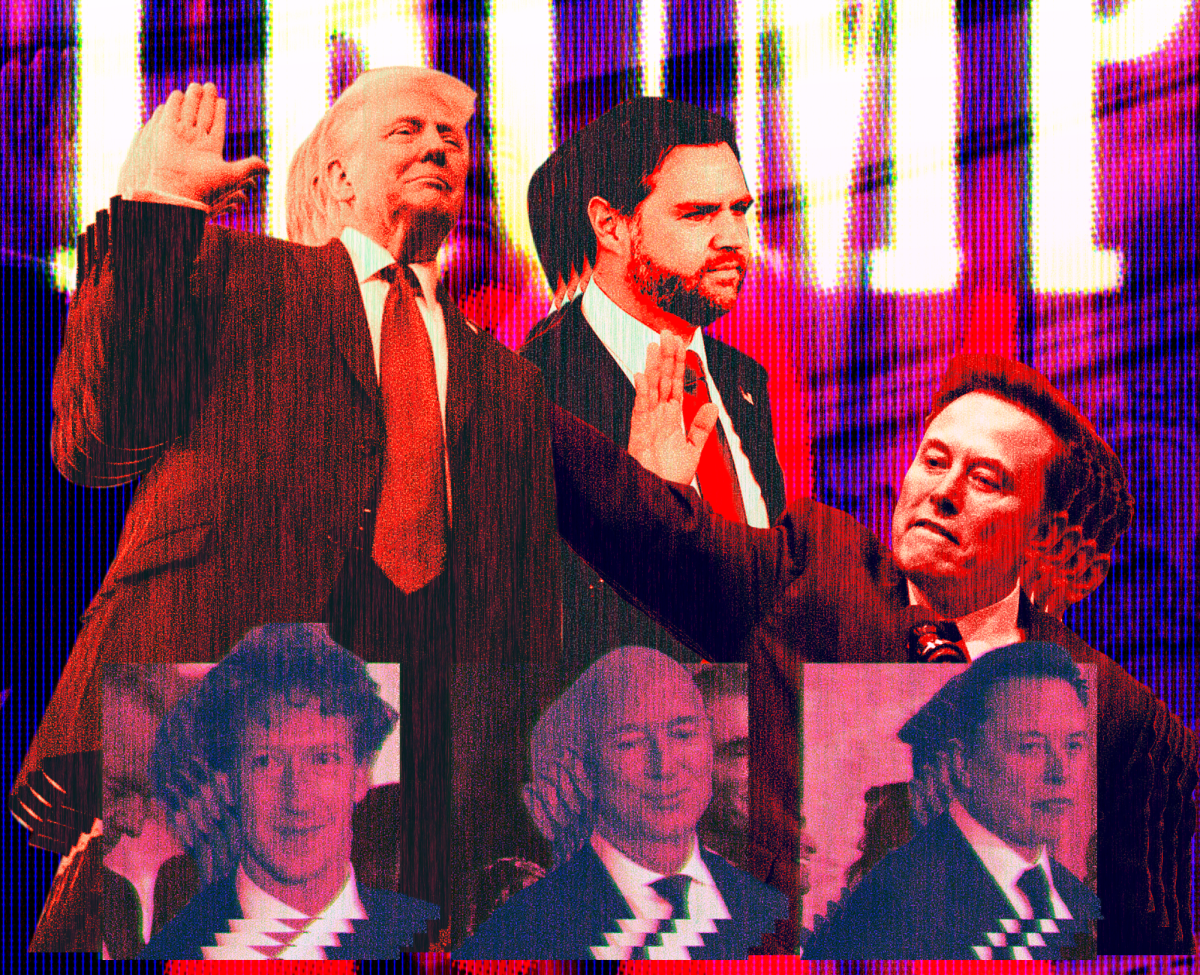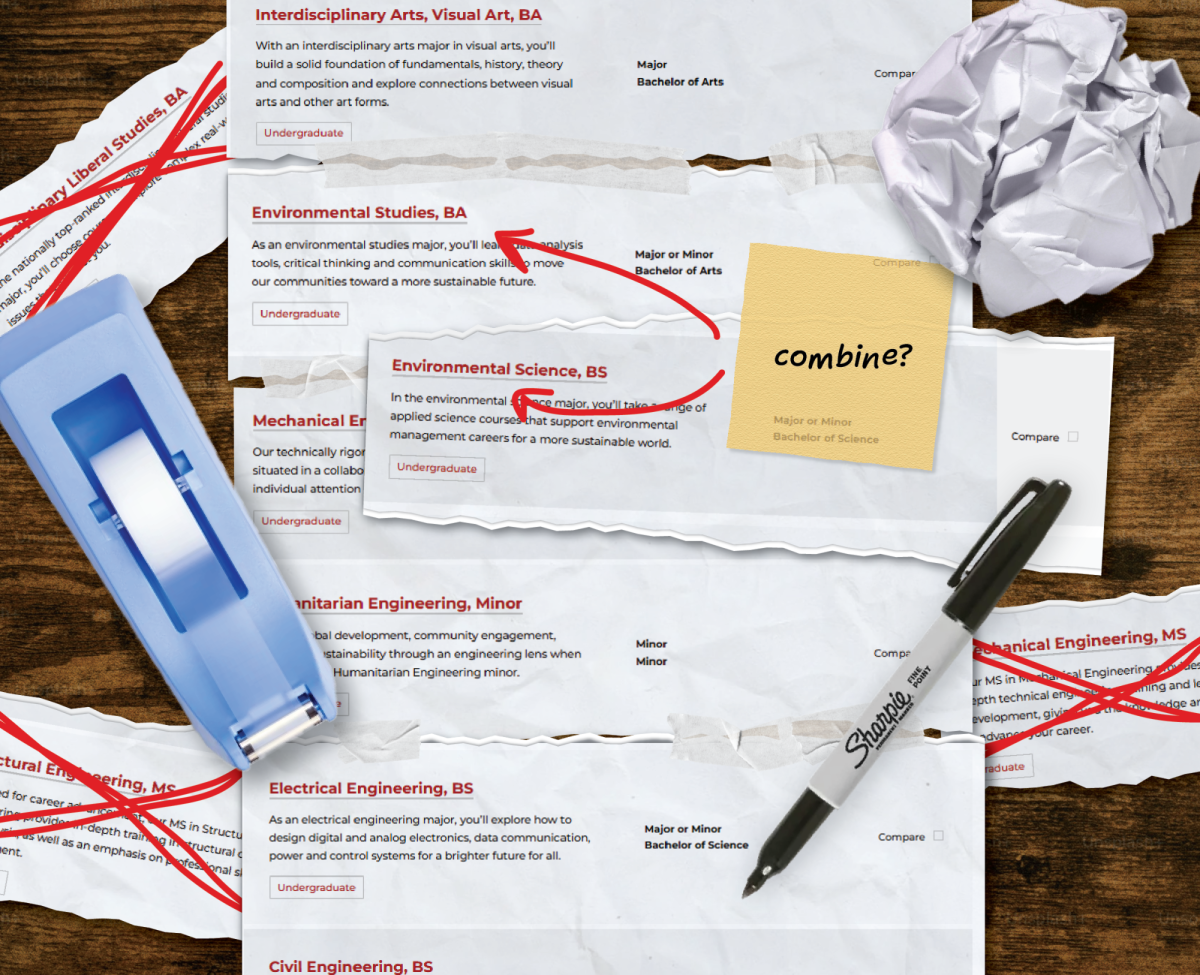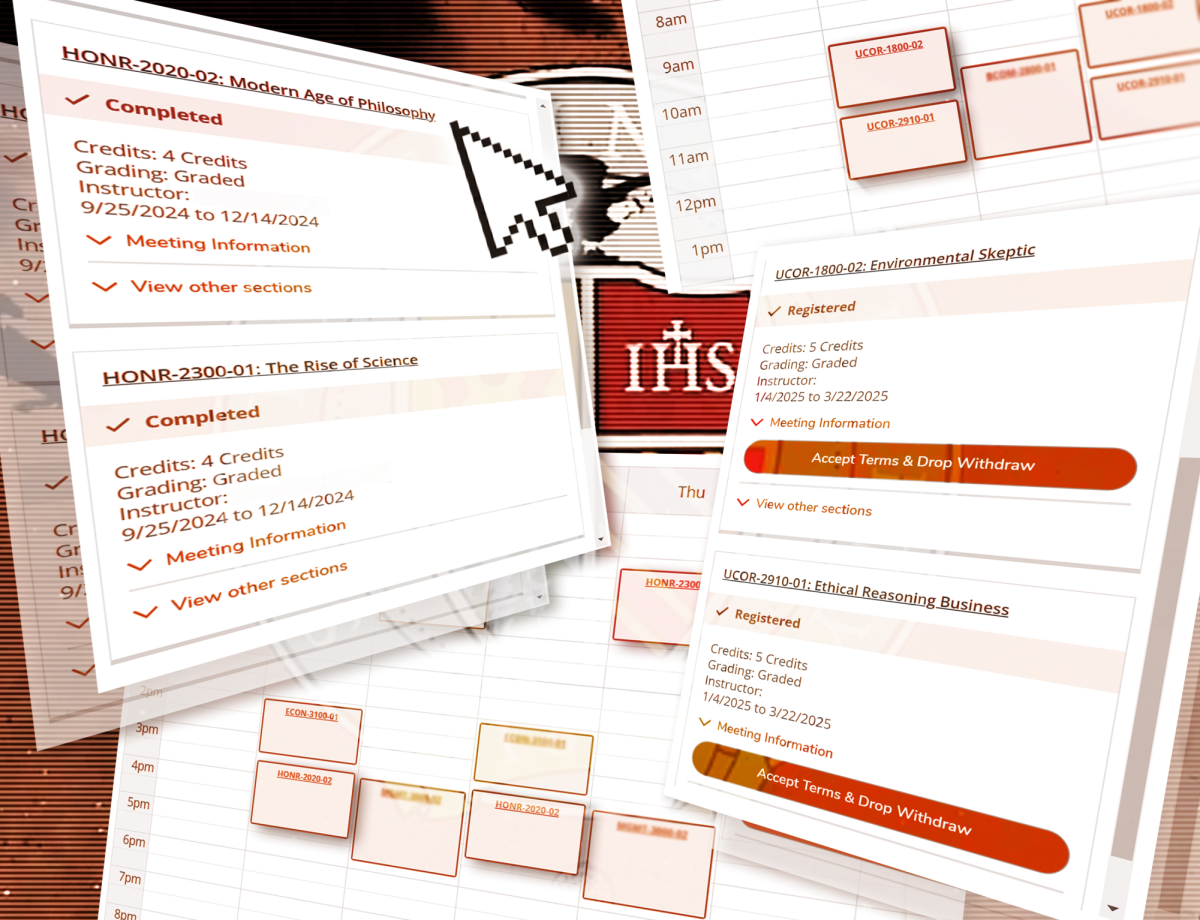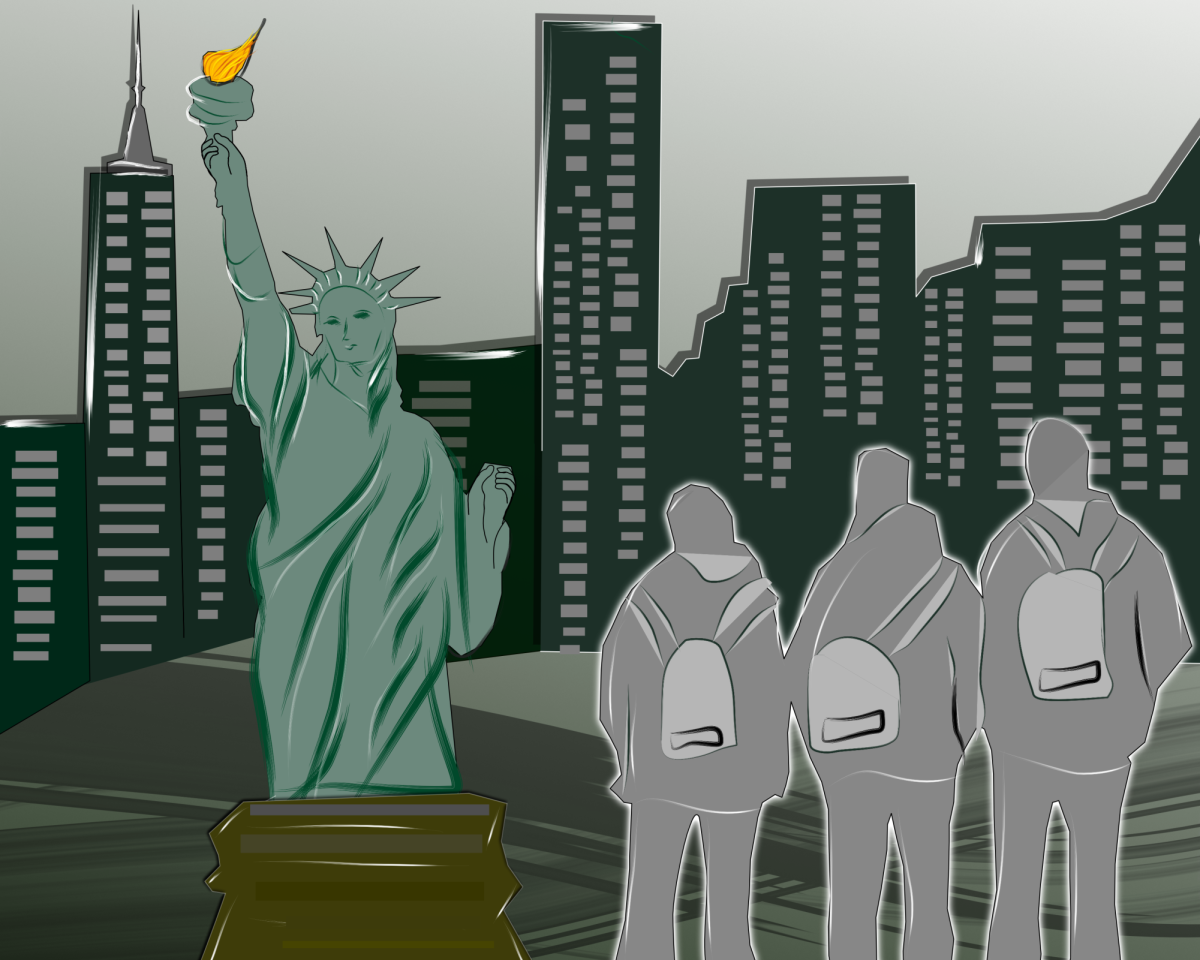During his first day in office, President Donald Trump issued numerous presidential actions, including signing 26 executive orders, 12 memorandums, and four proclamations. Some of these executive orders include pulling the U.S. from the Paris Climate Agreement, declaring a national emergency at the U.S.-Mexico border and withdrawing from the World Health Organization, citing its failure to handle the COVID-19 pandemic.
Among the 12 memorandums was one ending remote work for federal employees and another directing the Department of Economic Policy to implement an “emergency price relief” plan to lower the cost of living for Americans, although no details of the plan were outlined.
Trump Issues Insurrection Pardons
Among Trump’s many inaugural proclamations, one of the most notable was the pardoning and commutation of over 1,500 sentences for offenses related to the Jan. 6, 2021 Insurrection.
Second-year Law Student Shayla Kline believes the pardoning adds to the divide among Americans, compounding other issues. Kline explained how, as a law student, this pardoning has a lasting effect on the criminal justice system in the U.S.
“I think it undermines how people view the criminal justice system. What incentives are we giving people to follow the law if their political party can simply pardon them when they do something as egregious as [participate] in an insurrection?” Kline said.
The decision left Kline baffled.
“I could have understood pardoning those who were peacefully protesting outside the Capitol and didn’t go inside to vandalize and attack. That could have bridged the gap. Politics-wise, I think it’s fair that we do have a right to protest, but it is peaceful protest—it’s not storming the Capitol and attacking people who were just trying to do their jobs,” Kline said.
Patrick Schoettmer, an associate teaching professor of political science at Seattle University, explained the pardon power in detail.
“Pardons are used for a lot of different reasons. Sometimes they’re used for the frames they were intended to, which was addressing miscarriages of justice. Sometimes mass pardons fall into that category. Under the Obama administration, he did a lot of pardons for people who were convicted under marijuana charges,” Schoettmer said.
Schoettmer elaborated on the broader implications and potential flaws of pardon power under a second Trump presidency.
“The pardon power is a very powerful use of executive authority, and there are not many checks on it. The real question is, in theory, whether a president can pardon themselves. Based on common law, one cannot be a judge in their own case. But since no president has tried it before, it’s never been tested. If a president tried it, the prosecutor would be inclined to petition the Supreme Court,” Schoettmer said.
A Flurry of Executive Orders
Following his swearing-in ceremony and the inaugural lunch, Trump signed the first of 26 day-one executive orders.
Around 10 orders were centered around immigration policy, part of the platform Trump’s election campaign ran on. Several laws specifically focused on border security. Trump declared illegal immigration at the U.S.-Mexico border a national emergency and reinstated his “Remain in Mexico” policy, which requires asylum seekers to remain in Mexico until their court date. The policy was reimplemented without Mexico’s agreement, which could affect its implementation.
Other immigration-focused orders were signed to restrict citizenship and increase deportations. One of the most scrutinized immigration orders Trump signed on day one was a policy to restrict birthright citizenship. The order states that citizenship will not automatically be given to children born in the U.S. whose mother was “unlawfully present” or “lawful but temporary” in the U.S. at the time of birth, and whose father was not a U.S. citizen or permanent resident. Only children born 30 days after the policy is enforced will be affected by the legislation.
Second-year Communication and Media Major Olivia Rankin believes the order will have a massive impact on families across the country.
“Families would be torn apart,” she said. “The income for those families [would be impacted], it’s really terrifying coming from an immigrant family.”
If it clears a mountain of legal challenges, as more than 20 states are currently suing the Trump administration for the policy, the order would re-interpret the 14th Amendment, which currently guarantees birthright citizenship
Visiting Assistant Teaching Professor of Political Science Thomas Mann believes that the order, along with Trump’s other new policies, have a clear path to move forward.
“The most one can hope for at the time is for states that are already going to sue to delay or stall [the order], but I wouldn’t hope for too much if it reaches the Supreme Court in the next four years,” Mann stated.
Another key order he signed pulled the U.S. out of the Paris Climate Agreement, the 2015 accord in which countries pledged to cut greenhouse gas emissions to limit the effects of climate change. This is the second time Trump withdrew the U.S. from the agreement, making the country one of the few nations in the world not tied to the pact. The withdrawal process from the agreement will take a year.
According to Seattle U’s Director of Environmental Studies Tanya Hayes, this order signals a shift away from renewable energy production and environmental protections.
“At the federal level… we’re not going to have as much funding for environmental protections and specifically toward climate mitigation and adaptation,” Hayes said. “Trump’s hope is to turn away from more wind and solar and go back to gas and drilling. I think there will be a slight push for that, I think we’ll see a lot of lawsuits come out [against drilling] that will stall the process for a long time.”
While withdrawing from the Paris Climate Agreement likely indicates cuts in federal environmental spending, the same may not be true at the state and local levels. Washington state remains a leader in climate policy in the U.S. and is expected to retain key programs such as the Climate Commitment Act.
“I think it’s important to start paying more attention to what states are doing. There’s the Governor’s Climate Alliance … and they’re bipartisan so they can have more pull in that as well,” Hayes said.
One executive order that sparked discussion among many Seattle U students involved pausing the TikTok ban that went into effect just before Trump’s inauguration. The order called on the U.S. attorney general to not enforce the ban until early April. The ban could be eliminated entirely should TikTok’s parent company, ByteDance, decide to sell the app to an American company before the deadline. Trump has said that he is open to Elon Musk buying the app.
Despite the uncertainty of the app’s feature following April, TikTok was quick to credit Trump for halting the ban.
“We are fortunate that President Trump has indicated that he will work with us on a solution to reinstate TikTok once he takes office,” a message to TikTok users read, a day before Trump’s inauguration.
TikTok’s praise of Trump is part of a broader trend toward political involvement that many social media companies have followed over the past few years, including X and Meta.
Students like Second-year Mechanical Engineering Major Oliver Baldwin have noticed this trend.
“With Meta and TikTok pandering to Trump, I can only imagine other social media will pander around Trump,” Baldwin said.
A full list of Trump’s first policies can be found online.
The Future of Trump’s America
As Trump’s promise of change in the U.S. becomes reality, many students are feeling a sense of uncertainty for the future.
“I’m feeling kind of weird, I don’t know what’s going to happen,” Baldwin said. “Maybe in a month I’ll be more aware of what’s going to happen in the next four years, but now it’s kind of uncertain.”
Political uncertainty combined with dwindling political opposition is set to help push Trump’s agenda forward. Mann thinks Trump has all the pieces he needs to implement the policies he wants.
“Not only is the Trump team much more organized this time… institutionally there doesn’t seem to be any kind of blocks,” Mann said. “They have all the branches of government, they have a party that is totally loyal to the executive, possibly more importantly, they have the backing of the richest people in the world.”
Trump has shown in his first few days an aggressive and urgent push to restructure many existing policies of the American government. The extent of Trump’s actions will continue to place many citizens in vulnerable positions and will further regress decades of social progress in favor of a chosen elite.














